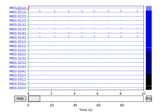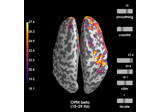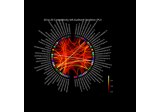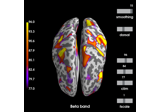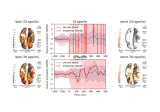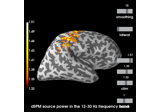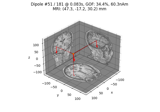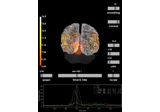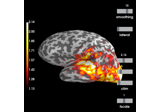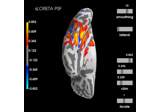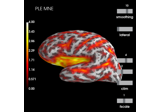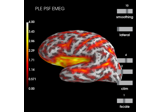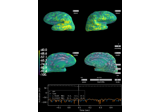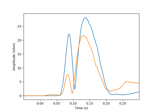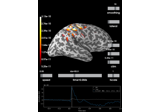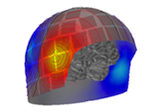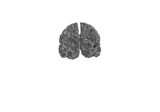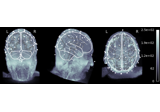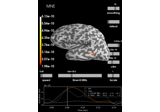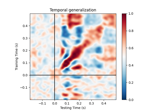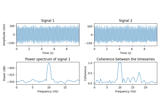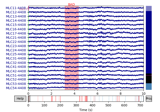mne.minimum_norm.make_inverse_operator¶
-
mne.minimum_norm.make_inverse_operator(info, forward, noise_cov, loose='auto', depth=0.8, fixed='auto', rank=None, use_cps=True, verbose=None)[source]¶ Assemble inverse operator.
- Parameters
- info
dict The measurement info to specify the channels to include. Bad channels in info[‘bads’] are not used.
- forward
dict Forward operator.
- noise_covinstance of
Covariance The noise covariance matrix.
- loose
float| ‘auto’ |dict Value that weights the source variances of the dipole components that are parallel (tangential) to the cortical surface. Can be:
- float between 0 and 1 (inclusive)
If 0, then the solution is computed with fixed orientation. If 1, it corresponds to free orientations.
'auto'(default)Uses 0.2 for surface source spaces (unless
fixedis True) and 1.0 for other source spaces (volume or mixed).
- dict
Mapping from the key for a given source space type (surface, volume, discrete) to the loose value. Useful mostly for mixed source spaces.
- depth
None|float|dict How to weight (or normalize) the forward using a depth prior. If float (default 0.8), it acts as the depth weighting exponent (
exp) to use, which must be between 0 and 1. None is equivalent to 0, meaning no depth weighting is performed. It can also be adictcontaining keyword arguments to pass tomne.forward.compute_depth_prior()(see docstring for details and defaults). This is effectively ignored whenmethod='eLORETA'.Changed in version 0.20: Depth bias ignored for
method='eLORETA'.- fixedbool | ‘auto’
Use fixed source orientations normal to the cortical mantle. If True, the loose parameter must be “auto” or 0. If ‘auto’, the loose value is used.
- rank
None|dict| ‘info’ | ‘full’ This controls the rank computation that can be read from the measurement info or estimated from the data. See
Notesofmne.compute_rank()for details.The default is None.- use_cpsbool
Whether to use cortical patch statistics to define normal orientations for surfaces (default True).
- verbosebool,
str,int, orNone If not None, override default verbose level (see
mne.verbose()and Logging documentation for more). If used, it should be passed as a keyword-argument only.
- info
- Returns
- invinstance of
InverseOperator Inverse operator.
- invinstance of
Notes
For different sets of options (loose, depth, fixed) to work, the forward operator must have been loaded using a certain configuration (i.e., with force_fixed and surf_ori set appropriately). For example, given the desired inverse type (with representative choices of loose = 0.2 and depth = 0.8 shown in the table in various places, as these are the defaults for those parameters):
Inverse desired
Forward parameters allowed
loose
depth
fixed
force_fixed
surf_ori
Loose constraint,Depth weighted0.2
0.8
False
False
True
Loose constraint0.2
None
False
False
True
Free orientation,Depth weighted1.0
0.8
False
False
True
Free orientation1.0
None
False
False
True | False
Fixed constraint,Depth weighted0.0
0.8
True
False
True
Fixed constraint0.0
None
True
True
True
Also note that, if the source space (as stored in the forward solution) has patch statistics computed, these are used to improve the depth weighting. Thus slightly different results are to be expected with and without this information.
